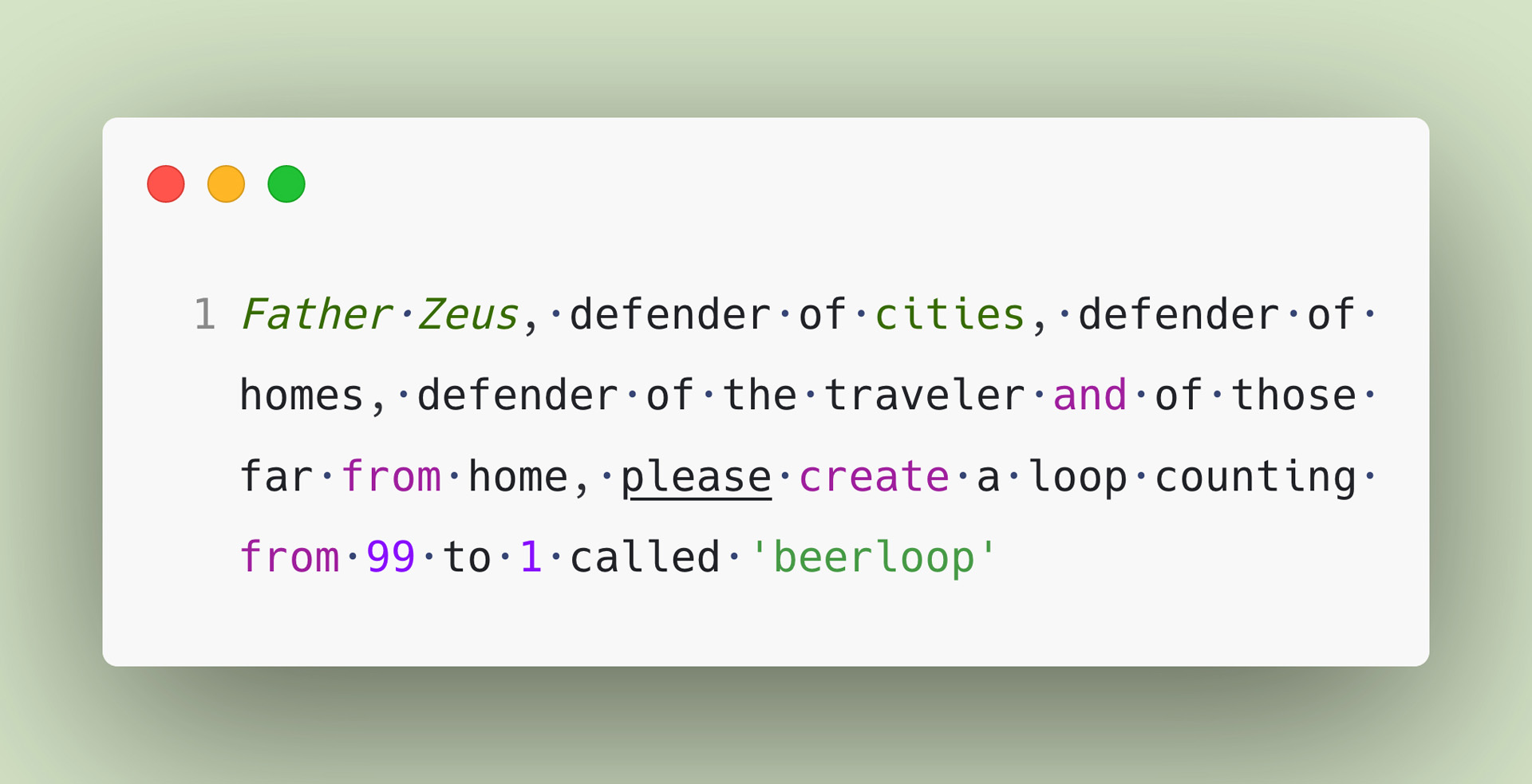“The Olympus Programming Language”
Conference:
Type(s):
Title:
- The Olympus Programming Language
Session/Category Title: Script & Prescribe
Presenter(s)/Author(s):
Abstract:
Olympus mixes natural language and formal code to create programs that read as prayers to Greek mythological figures. The language challenges the perceived power of the programmer in controlling the behavior of the machine, as shown through the preponderance of bugs. As Joseph Weizenbaum said, the machine “constantly displays undeniable evidence of [the programmer’s] failures.” Unlike previous esolangs (“esoteric” or experimental programming languages) drawn from natural language, Olympus uses a metaprogramming model, creating an additional layer of abstraction from the code. This allows the programmer to describe program flow completely out of order, more in line with the thought process of the coder than the flow of the code. This also makes conversation natural for a language where every line is spoken to a different recipient, in this case a different Greek god. It is intended as an example of how even a seemingly silly or arbitrary premise can lead to radical new forms of computation when fully realized.
References:
[1]
[n. d.]. 2.16. Does Inform Really Understand English?Retrieved January 20, 2022 from http://inform7.com/book/WI_2_16.html.
Google Scholar
[2]
The Peggy Authors. [n. d.]. PeggyJS Documentation. Retrieved April 2, 2024 from https://peggyjs.org/documentation
Google Scholar
[3]
Lev Bratishenko. 2009. Technomasochism: Getting Spanked by INTERCAL. (2009).
Google Scholar
[4]
Luc Brisson (Ed.). 2017. Plato’s Criticism of Homer in Book X of the Republic. Anais De Filosofia Cl?ssica 11, 22 (2017).
Google Scholar
[5]
Beatrice Fazi. 2018. Contingent Computation. Rowman & Littlefield International, Ltd, London.
Google Scholar
[6]
Sol Lewitt (Ed.). 1969. Sentences on Conceptual Art. 0-9 5 (1969).
Google Scholar
[7]
Mark C. Marino. 2020. Critical Code Studies (1st ed.). MIT Press, Cambridge, MA. https://doi.org/12122.003.0004
Google Scholar
[8]
Richard Wexelblat. 1981. History of Programming Languages. Academic Press, New York, NY.
Google Scholar





